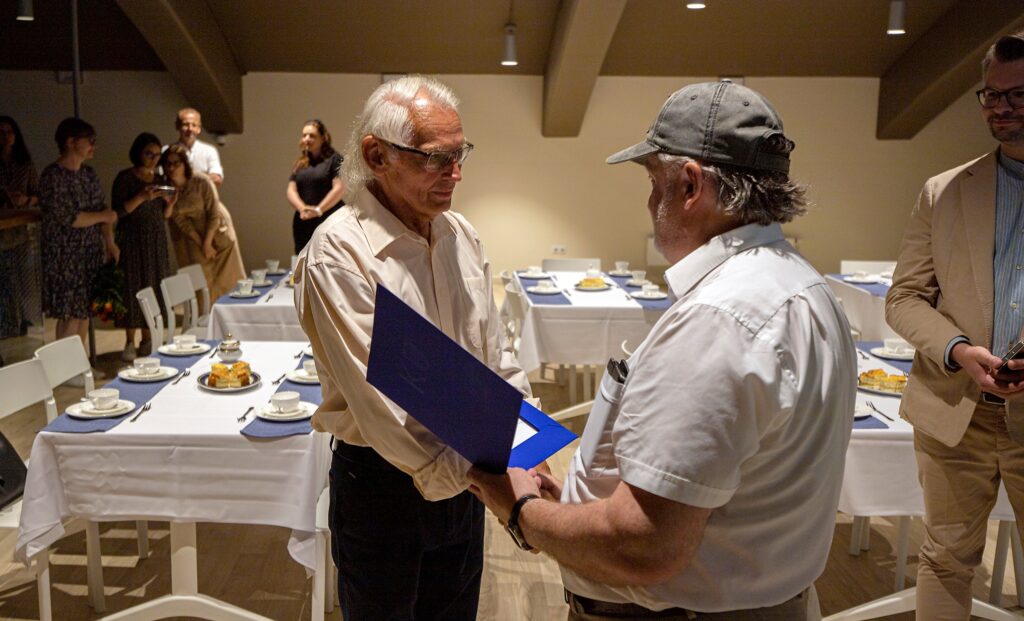On 28 June 2022, during its meeting, the Senate of Klaipėda University first awarded the title of Rector Emeritus: it was conferred on prof. dr. habil. Vladas Žulkus from 1 July 2022.
To honour academician professor dr. habil. Vladas Žulkus, during the event on July 1, the community of Klaipėda University congratulated him, while the KU administration representatives – Senate Chairman prof. dr. Vaidutis Laurėnas, Chair of the KU Council Vytautas Grubliauskas, and Vice-Rectors dr. Sonata Mačiulskytė and dr. Benediktas Petrauskas – presented him with an honorary letter of awarding the title of Rector Emeritus.
Prof. Vladas Žulkus has worked at Klaipėda University since February 1992 until June 2022. He was one of the founders of the then Centre for West Lithuanian and Prussian History and its Director in the years 1993 to 1998 and 2001 to 2002. In 2003, the Centre was reorganised into the Institute of Baltic Region History and Archeology. In total, Vladas Žulkus conducted research at the Centre and the Institute for 30 years. During that time, he led archaeological research on Klaipėda Castle Site, in Palanga, Plateliai and Plateliai Lake, as well as the Curonian Lagoon and the Baltic Sea. He formed a group of archeological researchers at Klaipėda University, was the editor-in-chief of the scientific journal Archaeologia Baltica for 13 years, and headed the Committee for the Joint PhD Programme in the area of History for 11 years; moreover, he was either academic supervisor or consultant of eight doctoral students who defended their dissertations at Klaipėda University over the period of 2008 through 2018. Vladas Žulkus was the author or co-author of seven scholarly monographs or studies; he represented Klaipėda University and Lithuania in various organisations and expert groups, including the Scientific and Technical Advisory Body of the UNESCO 2001 Convention on the Protection of Underwater Cultural Heritage and the ICOMOS International Committee on Underwater Cultural Heritage. In 2009, he and his colleagues were awarded the Lithuanian Science Prize.
Information from the Institute of Baltic Region History and Archeology








